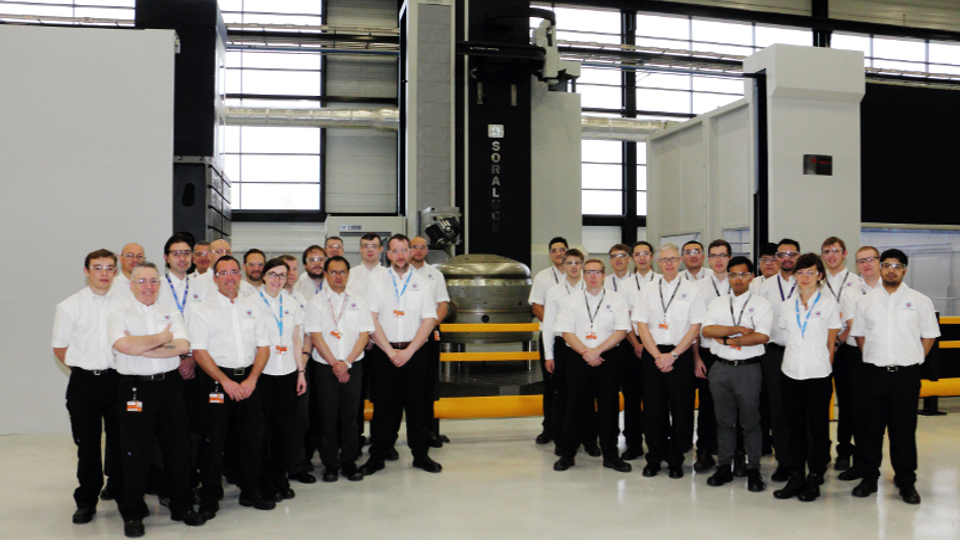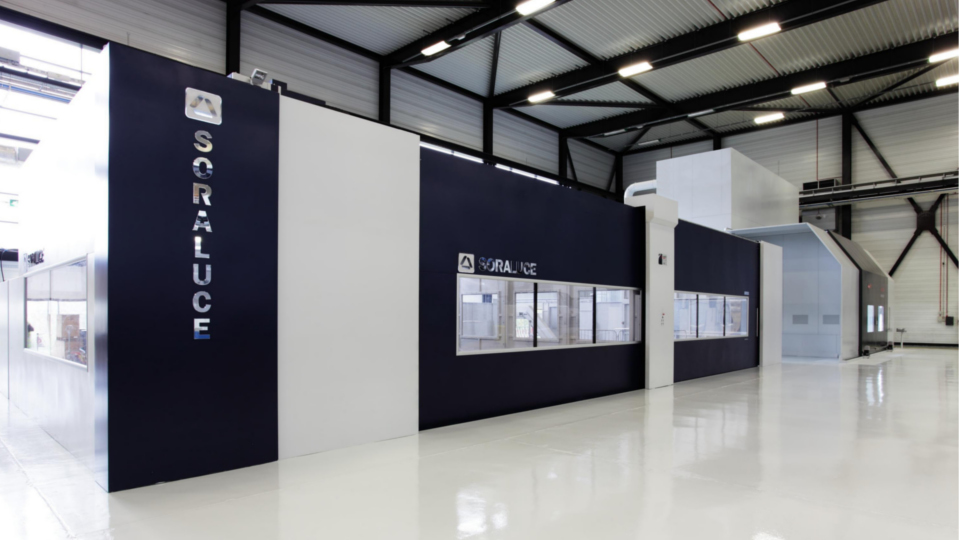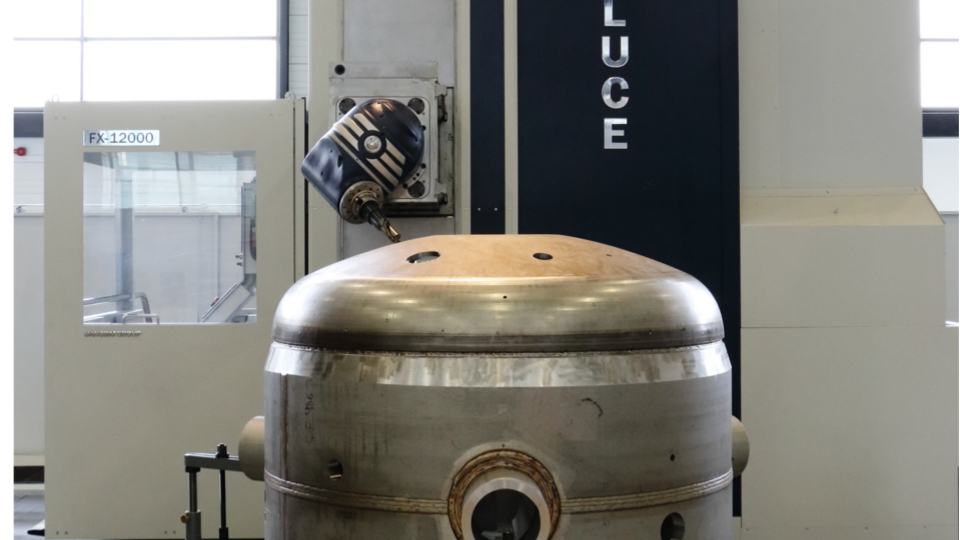Sector
Energy
Application
Partnership for encouraging the development of manufacturing processes for nuclear energy and other innovative energy sectors
Project goal
Improvement of manufacturing processes for precision vessels and internal components of the reactor, fully understanding the limits of machining and productivity, without negatively affecting the quality of the surface of these components.
Project solution
SORALUCE FX 12000 floor type milling-boring machine, the world´s largest machining centre for use in collaborative research
- Orthogonal head, automatic head, direct head, facing head and boring head
- Head changing system
- Tool changing
- Head indexing movement
- Rotary table 3500mm X 3500mm, up to 65Tn
- 2 base plates
- DAS System, Dynamics Active Stabiliser, increasing the machine´s dynamic rigidity
We are delighted to welcome SORALUCE to Nuclear AMRC. Our SORALUCE FX 12000 centre has already demonstrated its value among our industrial partners. Its size and capabilities allow us to tackle the most demanding machining tasks for a range of high precision, critical applications in the energy sector
Plant Manager
Nuclear AMRC
INTERVIEW VIDEO
Article
The Nuclear AMRC was established in 2009 to combine the knowledge, practices and expertise of manufacturing companies with the capability of universities. It is led by the University of Sheffield with support from The University of Manchester Dalton Nuclear Institute. Over 40 companies have joined the Nuclear AMRC as members, from reactor providers and top-tier suppliers to providers of specialist equipment and services.
The Nuclear AMRC’s 8,000 m2 research factory opened in the year 2012, and is now home to over £28 million worth of state-of-the-art manufacturing equipment –including a SORALUCE FX-12000 machine, the world’s largest machining centre of its kind available for collaborative research. This machine is used for the joint research and improvement of key manufacturing processes for complex parts that may have not been improved in the past 50 years due to the limitations on the manufacturing standards of a very conservative sector.


